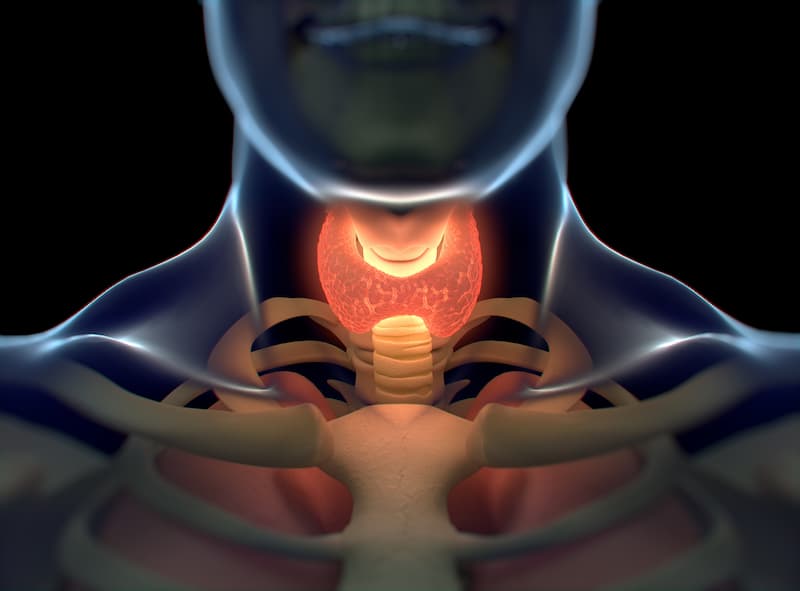Ceramic Thyroid Ablation Needle Earns Class III Certificate in China
The characteristics of rare earth ceramics may yield more consistent microwave energy penetration during the treatment of those with thyroid nodules.
The FDA previously cleared developers as part of Section 510(K) to market their microwave ablation systems and disposable microwave ablation needles as regulatory Class II devices across the United States in November 2023.

The National Medical Products Administration (NMPA) in China has granted a Class III certificate to the Ceramic Thyroid Ablation Needle as a treatment option for those with thyroid nodules, according to a press release from developers Baird Medical Devices, Inc.1
The novel needle makes use of rare earth ceramic materials, which are believed to potentially enable improved heat resistance, chemical stability, and electrical insulation. These properties may yield precise thermal control during surgical procedures while limiting postoperative complications. Additionally, the qualities of the earth ceramic materials may ensure safer and more effective procedures for patients.
The characteristics of the ceramics are also believed to mitigate edge heating effects that are sometimes observed during reflection and refraction during microwave ablative treatments. The needle, which is estimated to boost mechanical strength by 30% with the ceramic material, may demonstrate enhanced flexibility and reliability while penetrating tissue. Moreover, these qualities may thereby enhance operational accuracy while limiting the breakage risks.
The earth ceramics–based design is hypothesized to make microwave energy penetration more consistent while increasing overall heating efficiency by an estimated 20% to 30%. Developers believe the ceramic needle’s efficacy becomes further augmented by the use of high-temperature sintering technology as well as a precise connection to the needle shaft through specialized processes.
The NMPA upgraded the Classification of Microwave Ablation Devices from a Class II to a Class III Certificate while updating the Medical Device Classification Catalog in 2023.
“The introduction of the Ceramic Thyroid Ablation Needle signifies another breakthrough innovation in the field of microwave ablation and is a testament to our ongoing commitment to innovation and research,” Haimei Wu, founder and chief executive officer at Baird Medical, said in the press release.1 “We eagerly anticipate the positive impact of this technology by enhancing the patient treatment experiences and saving lives in the years to come.”
Developers at Baird Medical prioritize the advancement of medical devices used in the management of benign and malignant tumors, which include thyroid nodules, liver cancer, lung cancer, and breast lumps. According to the press release, they are the first to receive a Class III medical devices registration certification for microwave ablation devices specifically intended to treat patients with thyroid nodules in China.
The FDA previously cleared developers as part of Section 510(K) to market their microwave ablation systems and disposable microwave ablation needles as regulatory Class II devices across the United States in November 2023.2
As part of Section 510(K) of the Food, Drug, and Cosmetic Act, device manufacturers must notify the FDA of their intentions of marketing a medical device at least 90 days ahead of its arrival to the market.3 The 510(K), otherwise known as a premarket notification, allows the regulatory agency to determine whether a new device is equivalent to tools already designated to one of 3 classification categories. Developers of a medical device must submit a premarket notification if they look to commercially distribute a device for the first time or reintroduce a device that will undergo significant design changes or modifications that may consequently impact its efficacy or safety.
“Attaining FDA clearance represents a significant milestone in our geographical expansion. This clearance grants us the ability to market our portfolio of [microwave ablation] systems and disposable needles in the United States,” Wu said in a press release at the time of the FDA clearance.2
References
- Baird Medical granted new Class III Certificate by China's NMPA for Ceramic Thyroid Ablation Needle. News release. Baird Medical Devices, Inc. March 29, 2024. Accessed April 1, 2024. https://tinyurl.com/rf22nz7h
- Baird Medical attains FDA clearance to market its Microwave Ablation System in the United States. News release. Baird Medical Devices, Inc. November 21, 2023. Accessed April 1, 2024. https://tinyurl.com/mr32j2du
- 510(k) clearances. FDA. Accessed April 1, 2024. https://tinyurl.com/bdh76neh